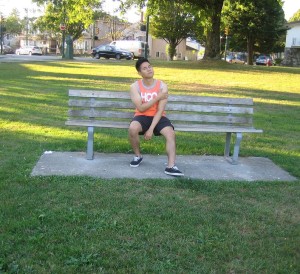Frozen shoulder is a condition that triggers pain and limited movement in the shoulder joint. It is comprised of 3 stages – freezing, stiff and thawing phase.
What are the indications?
- Painful or freezing – the symptoms start with gradual shoulder pain. The pain is often widespread and severe at night time which makes resting on the affected side difficult. This can last amid 2-9 months.
- Stiffening or frozen – this is the 2nd phase where the shoulder joint stiffens. The shoulder is painful and daily tasks such as carrying bags or dressing can be difficult. The muscles of the shoulder start to waste away due to lack of use and this is quite noticeable. The symptoms can last between 4-12 months.
- Thawing phase – the symptoms start to improve where the range of movement increases and the pain gradually settles but can recur as the stiffness eases for a time. This phase can last for 5-12 months.
The individual should keep the shoulder moving even with minimal pendular movements.
Management of a frozen shoulder
It is best to consult a doctor if this condition is suspected since early treatment can prevent significant stiffness from developing. If a rehabilitation program is recommended, it should be carefully followed.
The individual should keep the shoulder moving even with minimal pendular movements. In case movement triggers pain, this should be done under the guidance of a therapist. Additionally, mobility exercises can keep the shoulder mobile and must be done regularly if the pain allows.
Medical care
A frozen shoulder is initially managed conservatively with surgery as the last resort if other measures fail to work. In most cases, physiotherapy and workout can help preserve movement and flexibility of the shoulder muscles.
Oral steroids or anti-inflammatory medications can be given to minimize the inflammation in the shoulder joint. In some cases, direct injection of steroid into the joint can help reduce the tenderness. In case conservative measures fail, surgery is the last option.
Quick Note / Disclaimer
The material posted on this page on a frozen shoulder is for learning and educational purposes only. To learn to recognize and manage joint injuries and conditions, register for a first aid and CPR course with Red Deer First Aid.

